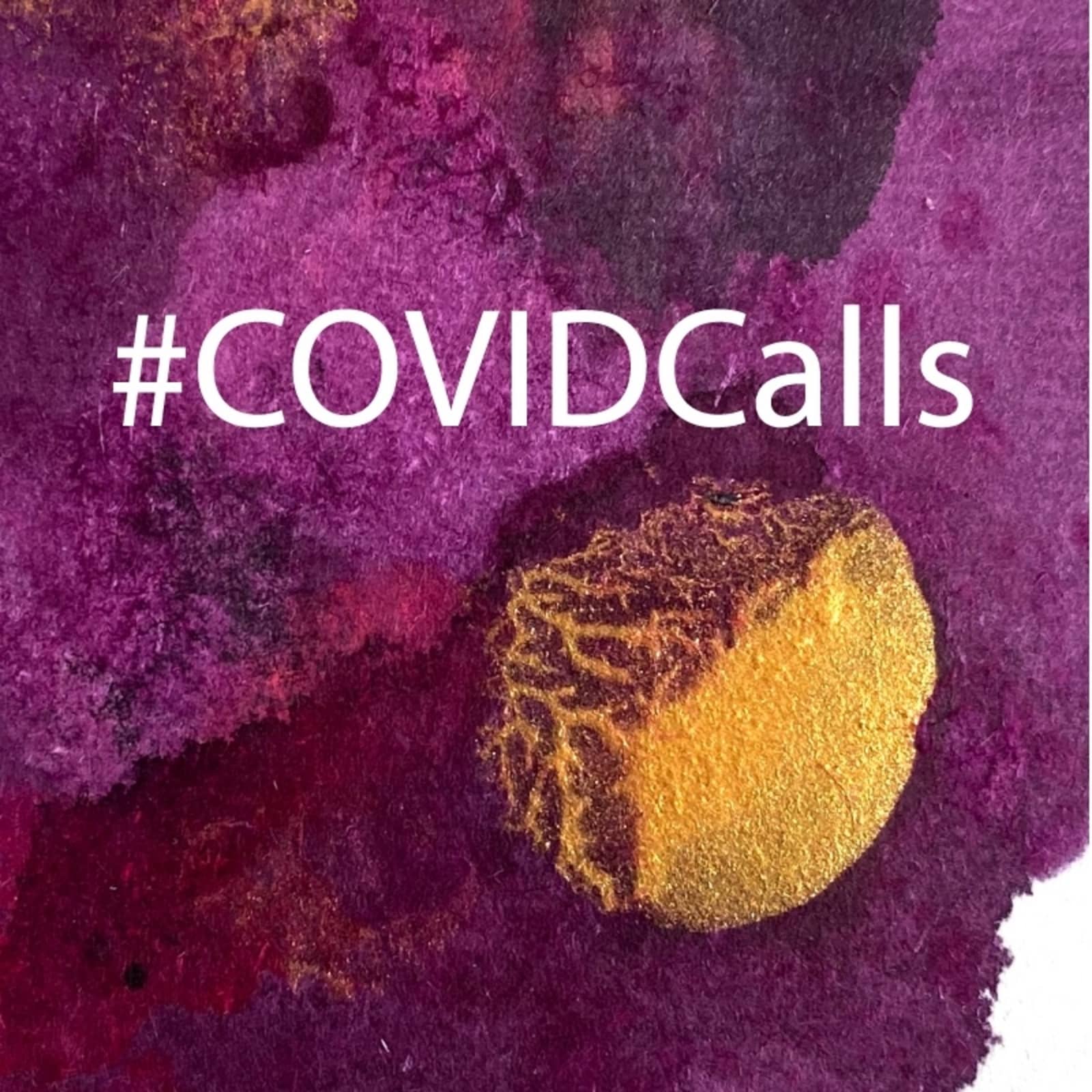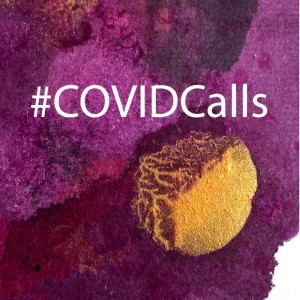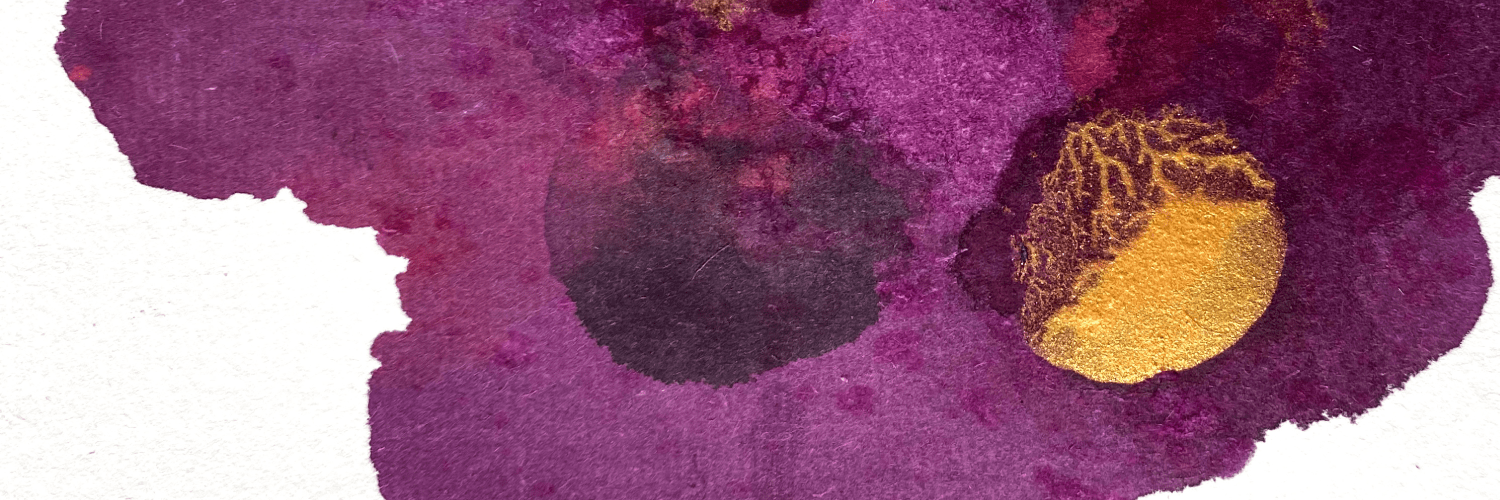
56K
Downloads
504
Episodes
A daily discussion of the COVID-19 pandemic with a diverse collection of disaster experts - hosted by Dr. Scott Gabriel Knowles, a historian of disasters at KAIST in Daejeon, South Korea.
A daily discussion of the COVID-19 pandemic with a diverse collection of disaster experts - hosted by Dr. Scott Gabriel Knowles, a historian of disasters at KAIST in Daejeon, South Korea.
Episodes

Monday Jul 20, 2020
Monday Jul 20, 2020
Today, I am excited to have the second of my discussions about racial justice and disaster research with Bill Anderson Fund Fellows - my guests are Nancy Contreras and Antoine Richards.
Nancy Contreras is a Ph.D. candidate in Criminology at the University of Delaware. She is a Bill Anderson Fund Fellow and an affiliate of the Disaster Research Center. Her dissertation explores international transit migration using legal violence, social
vulnerability, and resiliency. Nancy also investigates race-based culture-specific programming, social movement organizing,
and perceived police-community relations. Her previous practitioner experience covers safe haven homelessness, the juvenile
justice system, and behavioral health. Nancy’s current research interests include forced migration, borders, and social disasters.
Antoine Richards is a Doctor of Science (DSc) student in Emergency Management at Jacksonville State University. Currently, he is a Bill Anderson Fund Fellow, Senior Advisor for the Institute for Diversity and Inclusion in Emergency Management (I- DIEM), Director of Research for Peacebuilding Solutions; a 501(c)3 non-profit organization focusing on humanitarian assistance for forcibly-displaced populations; Richards received his Master of Public Health (MPH) degree from the Morehouse School of Medicine. His current research interests include social vulnerability, community resilience, and policy.

Saturday Jul 18, 2020
EP #82 - Natural Hazards Workshop - Scott Miles
Saturday Jul 18, 2020
Saturday Jul 18, 2020
Today, my guest is Scott Miles research scientist in the Department of Human Centered Design and Engineering at University of Washington and Director of the Impact360 Alliance initiative.
Dr. Scott Miles is a disaster scientist and consultant with expertise in disaster risk
reduction, long-term recovery, community resilience, reconnaissance, simulation
modeling, information systems, and human-centered design. He is a senior research
scientist in the Department of Human Centered Design and Engineering at
University of Washington. He is Director of the Impact360 Alliance initiative, which is a
collaborative of University of Washington, University of Oklahoma, and ImpactWX.
Scott was previously an associate professor at Western Washington University, where he
co-founded the Resilience Institute and Huxley College’s disaster risk reduction
minor. He has degrees in civil engineering, geographic information science, and human
geography.

Saturday Jul 18, 2020
EP #81 - The Hazards Workshop - Esher Chernak and Chelsea LeNoble
Saturday Jul 18, 2020
Saturday Jul 18, 2020
Today, we have a public health update and then a discussion about the health, well-
being, and resilience of first responders and essential workers with Chelsea LeNoble.

Tuesday Jul 14, 2020
EP #80 - COVID-19 in Sweden - Johan Gardebo
Tuesday Jul 14, 2020
Tuesday Jul 14, 2020
Today, we have a discussion of Sweden in the COVID-19 pandemic with historian of technology and science Johan Gardebo.
Johan Gärdebo holds a Phd in history of science, technology and environment from KTH Royal Institute of Technology in Stockholm.
He is just about to start a postdoctoral fellowship at Linköping University, researching Swedish carbon dependence and populism.
Johan’s research focus on transnational technoscientific expertise, in particular with regards to Sweden’s place in the world since from mid-twentieth century onwards.

Sunday Jul 12, 2020
EP #79 - Fiction in the Pandemic - Daniel Jose Older and Malka Older
Sunday Jul 12, 2020
Sunday Jul 12, 2020
Today, we have a discussion of fiction and writing in the COVID-19 pandemic with Malka Older and Malka’s brother Daniel Jose Older.
Daniel José Older is the New York Times bestselling author of the Middle Grade historical fantasy series Dactyl Hill Squad, the Bone Street Rumba urban fantasy series, Star Wars: Last Shot, The Book of Lost Saints, and the award winning Young Adult series the Shadowshaper Cypher, which won the International Latino Book Award and was shortlisted for the Kirkus Prize in Young Readers’ Literature,the Andre Norton Award, the Locus, the Mythopoeic Award, and named one of Esquire’s 80 Books Every Person ShouldRead. He is a lead story architect on the Star Wars: The High Republic cross platform initiative. You can find out more at http://danieljoseolder.net/
Malka Older is a writer, aid worker, and academic. Named Senior Fellow for Technology and Risk at the Carnegie Council for Ethics in International Affairs for 2015, she has more a decade of experience in humanitarian aid and development.Her research interests include intra-governmental relations in crises; the paradox of well-funded disaster responses;measurement and evaluation of disaster responses; and the effects of competition among actors in humanitarian aid. Malka Older’s science-fiction political thriller Infomocracy was named one of the best books of 2016 by Kirkus, Book Riot, and the Washington Post. She is also the author of the sequels, Null States (2017) and State Tectonics (2018). Her short story and poetry collection And Other Disasters was released in late 2019.

Wednesday Jul 08, 2020
Wednesday Jul 08, 2020
Today, we have the fifth of the ACADEMY of Natural Sciences +COVIDCalls discussions, and my guests are Julian Siggers president of the Penn Museum and Scott Cooper the ceo of the Academy of Natural Sciences.
Scott Cooper, PhD, is the president and CEO of the Academy of Natural Sciences. An international museum professional and heritage preservation scholar, Cooper has spent more than two decades protecting, transforming and promoting cultural sites and institutions around the world. Cooper studied engineering at the University of Manchester and architectural conservation at Edinburgh College of Art. He was awarded a UNESCO scholarship to study stone conservation in Venice and later returned to Edinburgh to complete his doctoral research on Scottish history. Cooper joined the Academy after four years as vice president of collections, knowledge and engagement at the Royal British Columbia Museum in Victoria, Canada. There he devised and implemented innovative learning, visitor experience, exhibitions, research and collections strategies, which together helped transform the institution into Canada’s most popular museum.
Julian Siggers joined the Penn Museum as Williams Director in 2012. He came to Philadelphia from the Royal Ontario Museum in Toronto, Canada, where he was vice president of programs, education, and content communication. He has also served as director of the Institute for Contemporary Culture at the Royal Ontario Museum and as head of narrative and broadcast development at the United Kingdom’s National Museum of Science and Industry in London.
Dr. Siggers was an archaeology columnist and on-air television host for seven years with the Discovery Channel, Canada. He taught prehistoric archaeology at the University of Toronto, where he earned his Ph.D. with a specialization in Near Eastern prehistoric archaeology. In September 2020, Dr. Siggers will end his tenure at the Penn Museum when he will become President and CEO of the Field Museum in Chicago.

Tuesday Jul 07, 2020
EP #76 - The Search for a COVID-19 Vaccine - Paul Offit
Tuesday Jul 07, 2020
Tuesday Jul 07, 2020
Today, we have a discussion of COVID-19 and vaccines with Dr. Paul Offit.
Paul Offit is a pediatrician specializing in infectious diseases and an expert on vaccines, immunology, and virology. He is the co-inventor of a rotavirus vaccine that has been credited with saving hundreds of lives every day. Offit is the Maurice R. Hilleman Professor of Vaccinology, professor of Pediatrics at the Perelman School of Medicine at the University of Pennsylvania and the director of the Vaccine Education Center at The Children's Hospital of Philadelphia. He has been a member of the Centers for Disease Control and Prevention (CDC) Advisory Committee on Immunization Practices. Offit is a board member of Every Child by Two and a founding board member of the Autism Science Foundation (ASF). His most recent book is Overkill: When Modern Medicine Goes Too Far. Also author of Bad Advice: Or Why Celebrities, Politicians, and Activists Aren't Your Best Source of Health Information. He is also the author of Pandora’s Lab, and many other books including: The Cutter Incident: How America’s First Polio Vaccine Led to Today’s Growing Vaccine Crisis; and Deadly Choices: How the Anti-Vaccine Movement Threatens Us All (Basic Books, 2011), which was selected by Kirkus Reviews and Booklist as one of the best non-fiction books of the year.

Monday Jul 06, 2020
EP# 78 - Children and the COVID-19 Pandemic - Alice Fothergill & Lori Peek
Monday Jul 06, 2020
Monday Jul 06, 2020
Today, we have a discussion of children in the COVID-19 pandemic with Alice Fothergill and Lori Peek.
Alice Fothergill is Professor of Sociology at the University of Vermont. She studies disasters, children, inequality, and vulnerability. She and co-researcher, Professor Lori Peek, conducted a longitudinal study on the experiences of children and youth in Hurricane Katrina, which resulted in the 2015 award-winning book, Children of Katrina. Professor Fothergill is an editor of Social Vulnerability to Disasters, first and second editions. Her book, Heads Above Water: Gender, Class, and Family in the Grand Forks Flood examines women’s experiences in the 1997 flood in Grand Forks, North Dakota. She has conducted research on volunteerism in the aftermath of the September 11, 2001 terrorist attacks in New York City, mothers’ challenges in academia, and the culture of childcare centers in Ohio. In the aftermath of Tropical Storm Irene in Vermont in 2011, she took her UVM Sociology of Disaster students into devastated Vermont communities to help with recovery efforts. In 2017, Professor Fothergill was a Fulbright Fellow in New Zealand, examining disaster preparedness for childcare centers.
Lori Peek is professor in the Department of Sociology and director of the Natural Hazards Center at the University of Colorado Boulder. She studies vulnerable populations in disaster and is author of Behind the Backlash: Muslim Americans after 9/11, co-editor of Displaced: Life in the Katrina Diaspora, and co-author of Children of Katrina. Behind the Backlash received the Distinguished Book Award from the Midwest Sociological Society and the Best Book Award from the American Sociological Association Section on Altruism, Morality, and Social Solidarity. Children of Katrina received the Best Book Award from the American Sociological Association Section on Children and Youth and the Alfred and Betty McClung Best Book Award from the Association for Humanist Sociologists.
Peek has conducted field investigations in the aftermath of the 9/11 terrorist attacks, Hurricane Katrina, the BP Oil Spill, the Christchurch earthquakes, the Joplin tornado, Superstorm Sandy, and Hurricane Matthew. She is the principal investigator for the NSF-funded CONVERGE facility, which is dedicated to improving research coordination and advancing the ethical conduct and scientific rigor of disaster research. She also leads the NSF-supported Social Science Extreme Events Research (SSEER) and Interdisciplinary Science and Engineering Extreme Events Research (ISEEER) networks.

Monday Jun 29, 2020
EP #75 - Brazil & COVID-19 - Rosanna Dent and Gilberto Hochman
Monday Jun 29, 2020
Monday Jun 29, 2020
Today, we have a discussion of BRAZIL WITH Rosanna Dent and Gilberto Hochman.
Rosanna Dent is an assistant professor in the federated history department of New Jersey Institute of Technology and Rutgers--Newark. She has published work on the history of epidemiological research in Indigenous communities, and the history of genetics and anthropology in Brazil. She is currently working on a manuscript that examines the political and social history of research interactions in Xavante (pronounced: Shah-vahn-teh) territory, as well as a digital humanities project to return scientific materials to the communities they document.
Gilberto Hochman is a researcher and professor at the Casa de Oswaldo Cruz-Fiocruz, Rio de Janeiro, Brazil. He is the author of works on health policies in a historical perspective such as the book "The Sanitation of Brazil - Nation. State and Public Health (1889-1930)" published in 2016 (The Illinois University Press). His current research is about science, politics and health in Cold War Brazil.

Monday Jun 29, 2020
